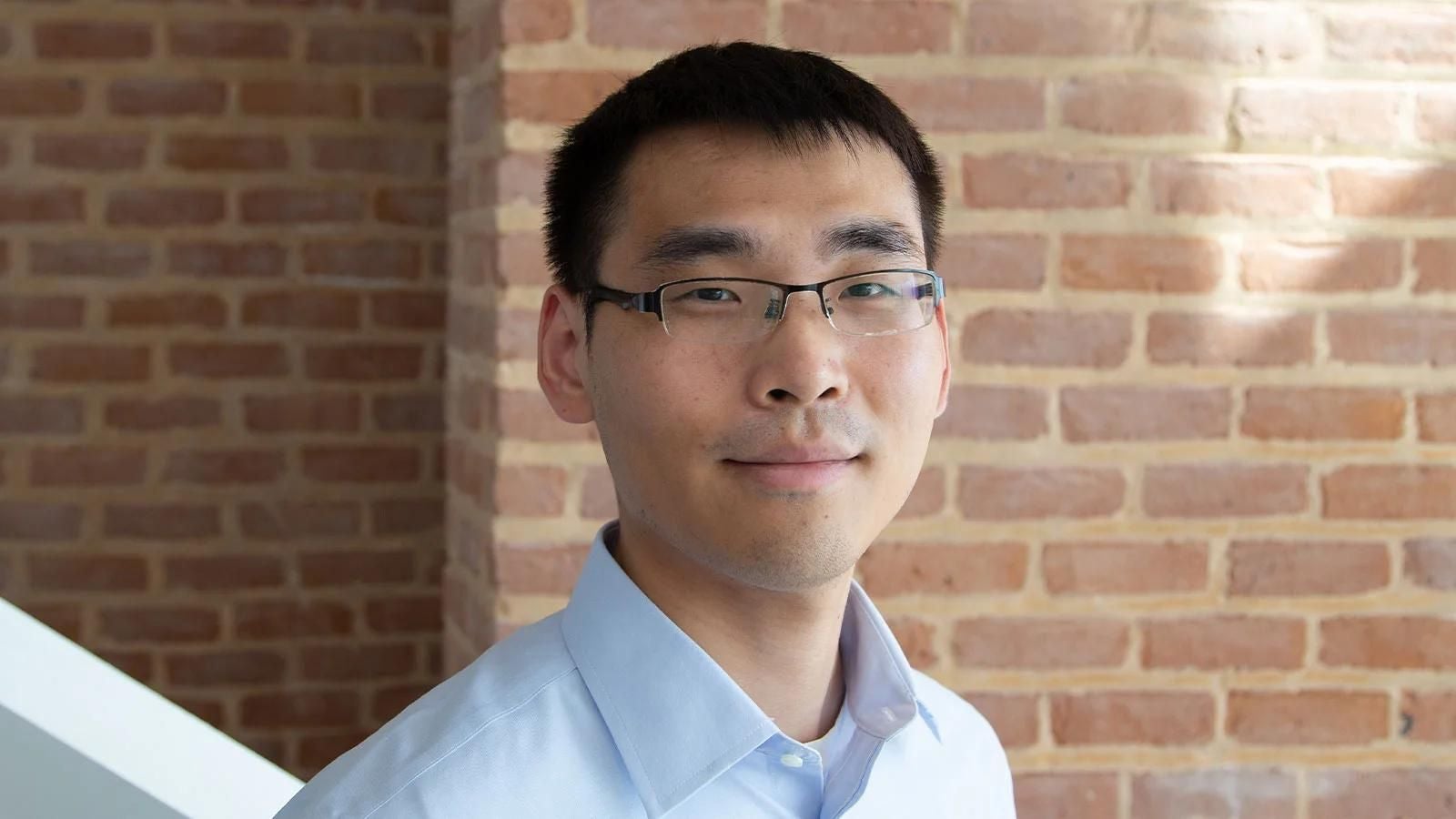Jiarong Xing, who received his Ph.D. in computer science from Rice University in 2024, joined the Rice Computer Science Department as an assistant professor this fall. Xing, who was most recently a postdoctoral researcher at UC Berkeley's Sky Computing Lab under the mentorship of Ion Stoica, sees a good home for his research at Rice.
"Rice is an elite private school, and the Rice CS department is developing well, especially in AI systems," Xing said. "We are much stronger than before — the department has a promising future."
He also looks forward to continuing his collaboration with Rice professor T.S. Eugene Ng.
"He is a very good systems networking researcher," Xing said. "We worked very closely in the past, and he mentored me and taught me a lot. His research style matches well with mine."
While at Rice, Xing was also a recipient of Rice's Future Faculty Fellowship (FFF), which supports aspiring academics with mock interviews, job-talk coaching and mentoring. He credits the program and Rice's warm environment as major factors in his decision to return.
"Everyone here is very friendly. They are always willing to help, and they gave me the feeling of home," Xing said.
Ph.D. research focuses on secure runtime programmable networked systems
In his Ph.D. research, Xing worked at the intersection of efficiency and security of networked systems. His work leveraged and enhanced programmable network devices, such as SmartNICs and programmable switches, to make systems more flexible, performant, and secure.
Xing’s key publications include "Runtime Programmable Switches" (NSDI 2022) and "Remote Direct Memory Introspection" (USENIX Security 2023), which also earned a Distinguished Paper Award. For his research contributions, Xing also became the first Rice student to earn the prestigious Google Ph.D. Fellowship for Systems and Networking and was a Meta Ph.D. Fellowship finalist.
Making GPUs more efficient for modern AI workloads
In his most recent work, Xing focuses on making GPU systems more efficient in serving large language models (LLMs). He envisions a system that enables better GPU sharing across multiple AI applications by optimizing resource partition, scheduling, and isolation.
"GPUs are very expensive, but their utilization is surprisingly low," Xing said. "They are not like how you use CPUs today where we have an operating system managing the resource sharing across multiple applications. GPUs were designed for single-tasking. Today, you can't run two LLMs at the same time on a GPU flexibly— it is not very sustainable or efficient."
As GPUs are getting bigger and more small LLMs are deployed for domain-specific tasks, enabling GPU multitasking is all the more essential.
Industry collaborations and real-world applications
In addition to his academic work, Xing has also had notable collaborations with major industry partners. Xing's optimizations to a machine learning compiler during a 2021 internship at ByteDance were merged into a widely used industry framework, and his work on programmable switches has influenced hardware features that are currently available on Nvidia's network switches. He has also worked with companies like Amazon Web Services, Meta, Google and Microsoft.
"I'll definitely continue working with these industry partners," Xing said. "The industry has very practical problems, because they are developing real AI services and they know what their customers need. By collaborating with them, it's possible to deploy research to the industry to serve millions of servers and you can transfer your research outcome to a real product — that's pretty cool. I'm very excited about that."
Xing said he would also encourage his students to do an internship in industry during their time at Rice.
"They can help you discover new research problems and give you experience in how industry works," Xing said.
Building a research group at Rice
As of now, Xing is already working with two Rice Ph.D. students and is actively seeking to add new students and interns to his group. He is looking for qualities like self-motivation and resilience.
"Research is very, very tough. Doing a Ph.D. program is very challenging. They need to have internal momentum," Xing said.
Xing always tells his students that it isn't a problem if they don't have background knowledge for a specific project or problem.
"As long as you believe the problem is important and you are willing to learn, you will get a background very soon, and then you can work on the important problem," Xing said.
Life outside of work
Outside of work, Xing is a Formula One racing and soccer fan. He plans to attend the upcoming race in Austin and is excited about the World Cup matches in Houston next year. He has also been a regular badminton player and hopes to continue to play weekly in Houston.
"I need to form a new group of people to play together soon," Xing said.

